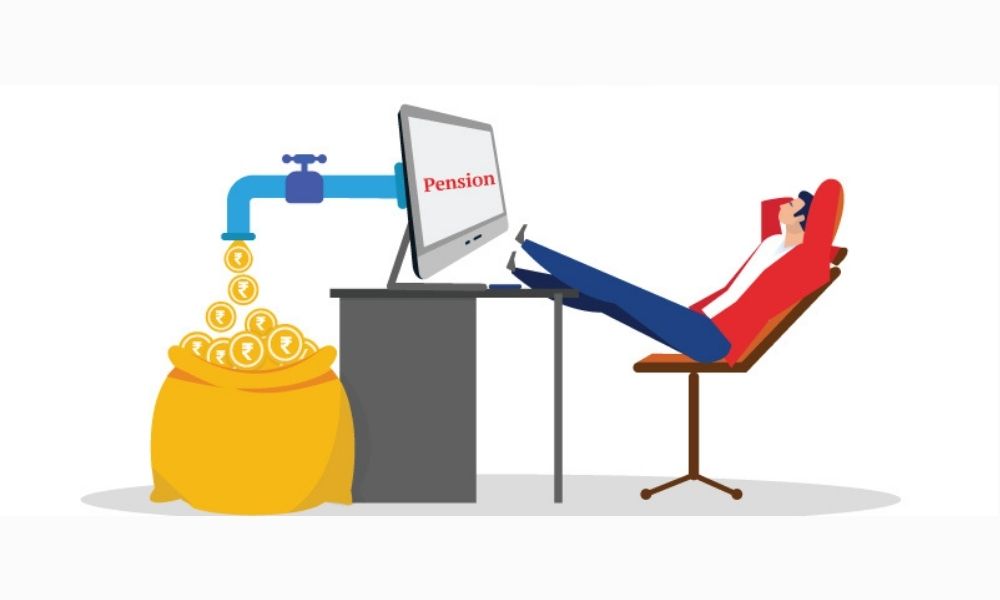Deferred benefit payments are a popular option for individuals looking to secure their financial future. It allows them to delay receiving their benefits until a later date, usually when they retire. This option is particularly attractive for those who want to maximize their retirement income or for those who are still working and do not need the benefits immediately.
But how soon can the benefit payments begin with a deferred? This is a common question among individuals considering this option. In this article, we will explore the concept of deferred benefit payments, how they work, and when you can expect to start receiving your benefits. We will also discuss the advantages and disadvantages of deferred benefits and provide some real-life examples to help you make an informed decision.
Contents
Understanding Deferred Benefit Payments
Deferred benefit payments are a type of retirement plan where an individual chooses to delay receiving their benefits until a later date. This option is available for various types of benefits, including Social Security, pension plans, and annuities. The individual can choose to defer their benefits for a specific period, usually between one to five years, or until they reach a certain age, such as 65 or 70.
Read:Does child support affect ssi benefits?During the deferral period, the individual continues to contribute to their retirement plan, and their benefits continue to grow. This is because most retirement plans use a formula that takes into account the number of years an individual has contributed to the plan and their average salary during that time. By deferring their benefits, individuals can increase their retirement income significantly.
For example, let’s say John is eligible for a Social Security benefit of $1,500 per month at the age of 62. However, if he chooses to defer his benefits until the age of 66, his monthly benefit will increase to $2,000. This is because Social Security benefits increase by 8% for every year an individual delays receiving them, up to the age of 70. In this case, John’s benefit increased by 32% by deferring for four years.
When Can You Start Receiving Your Deferred Benefits?
The answer to this question depends on the type of benefit you are deferring. For Social Security benefits, you can start receiving your deferred benefits as early as the age of 62. However, the longer you defer, the higher your monthly benefit will be. The maximum age for deferring Social Security benefits is 70, after which there is no additional increase in benefits.
Read:Will snap benefits increase?For pension plans and annuities, the age at which you can start receiving your deferred benefits may vary. Some plans may allow you to start receiving your benefits as early as 55, while others may require you to wait until you reach the age of 65. It is essential to check with your plan provider to determine the specific age at which you can start receiving your benefits.
It is worth noting that the age at which you start receiving your deferred benefits may also affect the amount you receive. For example, if you start receiving your benefits at the age of 55, your monthly benefit may be lower than if you wait until the age of 65. This is because the plan provider assumes that you will be receiving your benefits for a longer period, and therefore, the monthly amount is adjusted accordingly.
The Advantages of Deferred Benefits
There are several advantages to choosing deferred benefits, including:
- Increased Retirement Income: As mentioned earlier, deferring your benefits can significantly increase your retirement income. This is particularly beneficial for individuals who have a longer life expectancy or those who want to maintain their standard of living during retirement.
- Tax Benefits: By deferring your benefits, you can reduce your taxable income during your working years. This can result in significant tax savings, especially if you are in a higher tax bracket.
- Flexibility: Deferred benefits provide individuals with more flexibility in managing their retirement income. They can choose to start receiving their benefits when they need them the most, such as when they retire or when they need to cover unexpected expenses.
The Disadvantages of Deferred Benefits
While deferred benefits offer many advantages, there are also some disadvantages to consider, including:
Read:How to apply for caregiver benefits?- Uncertainty: One of the main disadvantages of deferred benefits is the uncertainty of future payments. While deferring your benefits can increase your monthly income, it also means that you are relying on future market conditions and interest rates. If these factors do not work in your favor, you may end up receiving less than you expected.
- Loss of Income: By deferring your benefits, you are essentially giving up a portion of your income during your working years. This can be challenging for individuals who are already struggling to make ends meet or those who have unexpected expenses.
- Changes in Circumstances: Life is unpredictable, and your circumstances may change in the future. If you choose to defer your benefits, you may not be able to access them when you need them the most. For example, if you become disabled or lose your job, you may need to start receiving your benefits earlier than planned.
Real-Life Examples
To better understand how deferred benefits work, let’s look at some real-life examples:
- Example 1: Sarah is 60 years old and is eligible for a pension plan that will pay her $2,000 per month if she starts receiving her benefits at the age of 65. However, if she chooses to defer her benefits until the age of 70, her monthly benefit will increase to $2,800. By deferring for five years, Sarah will receive an additional $9,600 per year in retirement income.
- Example 2: Mark is 62 years old and is eligible for a Social Security benefit of $1,500 per month. If he starts receiving his benefits at the age of 62, he will receive a total of $18,000 per year. However, if he chooses to defer his benefits until the age of 66, his monthly benefit will increase to $2,000, resulting in a total of $24,000 per year. By deferring for four years, Mark will receive an additional $24,000 in retirement income.
Conclusion:
Deferred benefit payments can be an excellent option for individuals looking to secure their financial future. By deferring their benefits, they can increase their retirement income and enjoy tax benefits. However, there are also some disadvantages to consider, such as uncertainty and loss of income during working years. It is essential to carefully weigh the pros and cons and consider your individual circumstances before making a decision.
When it comes to the question of how soon you can start receiving your deferred benefits, the answer depends on the type of benefit you are deferring. For Social Security benefits, you can start receiving them as early as 62, while for pension plans and annuities, the age may vary. It is crucial to check with your plan provider to determine the specific age at which you can start receiving your benefits.
In conclusion, deferred benefit payments can be a valuable tool for individuals planning for their retirement. By understanding how they work and considering the advantages and disadvantages, you can make an informed decision that will help you achieve your financial goals.









